
by Debbie Burke
As writers, we send our characters on long, convoluted journeys to solve mysteries and create exciting compelling stories.
Today I’m going to tell the story about the journey of a book that traveled from point A to point B to point Q to point G to point X to point D to…you get the idea.
In July, my book The Villain’s Journey-How to Create Villains Readers Love to Hate was published.
My custom is to send print copies by snail mail to people who helped develop my books. They may have contributed research, beta read, or otherwise supported the growth from a teeny-weeny seed of an idea to a finished product. Without their help, my books wouldn’t exist. So I’m grateful and want to say “thank you” in a small way.
Let’s back up to 2022. The teeny-weeny seed for The Villain’s Journey came from a comment made by TKZ regular Marilynn Byerly. In response to a post I’d written about villains, she mentioned the hero’s journey was well known but was there a corresponding book about villains?
That sent me down the rabbit hole.
Amazingly, I only found one book devoted to the villain’s journey and it focused on sci-fi and fantasy.
During a conversation with TKZ emeritus Steve Hooley, he said, “Why don’t you write that book?”
Sounded like a great suggestion since there did appear to be a gap in the crime reference library that I could fill.
I wrote a proposal and sent it to TKZ’s wise guru Jim Bell to see what he thought of the idea. He encouraged me to go for it.
Fast forward to summer 2025. I finished the book. Jim wrote a wonderful blurb for it, as did Christopher Vogler, author of The Writer’s Journey: Mythic Structure for Writers.
These two respected powerhouses gave my book invaluable credibility in the writing craft world. I’m overwhelmed with gratitude to Jim and Chris for their support.
When the print books arrived, of course, I wanted the first two copies to go to Jim and Chris. I inscribed them, packaged them in padded envelopes, and took them to the post office. The clerk double-checked the addresses in the computer, printed out labels with bar codes, and off they went. Easy-peasy.
More than a month later, the post office returned Jim’s copy to me. A label said: “Return to Sender, address unknown, no such number, no such zone—” Oh, wait, that was Elvis.
This label claimed insufficient address, unable to forward, return to sender. Someone had written in red marker “Wrong address” above the printed post office label.
I double-checked the mailing address with Jim. Yup, I’d used the correct one and the post office label was indeed correct.
So why did the book come back to me?
I typed the tracking number into the search box for usps.com. The shipping history showed a long and winding road.
On August 13, the book began its journey from Kalispell, MT where I mailed it. It then travelled to distribution centers in Missoula, MT, Spokane, WA, Los Angeles, Santa Clarita, and landed at Jim’s neighborhood post office on August 18. So far so good.
Then the journey started twisting.
On August 18, the book was delivered to an address with a notation in the tracking history “delivered, front door/porch.”
On August 27, the next notation said, “insufficient address” followed by a notation “return to sender processed.”
Huh?
It then traveled back to the Santa Clarita distribution center and arrived August 29 in Aurora, CO. The same day, it was sent on to the Billings distribution center.
Okay, Billings is in Montana.
Two days later, it apparently took the wrong freeway off ramp, headed south, and arrived at the Phoenix, AZ distribution center.
Uh, Phoenix is not in Montana.
It sat in Phoenix for two days then was sent back to Aurora, CO distribution center. It sat there for two more days.
Then it went to Billings again.
Okay, at least it’s now back in the right state.
Then it took another wrong freeway exit. Whoops.
A day later, it shows up at the Denver, CO distribution center.
Three days later, it’s at the Missoula, MT distribution center. Then it’s sent 120 miles north to Kalispell and arrives there to be processed.
Whoops, U-turn back to Missoula for another day.
Another U-turn from Missoula back to Kalispell.
Finally, more than a month after the book began its journey, it was returned to me in Kalispell as “undeliverable, insufficient address.”
This poor villain had been on a journey that was a cross between Where’s Waldo and Mr. Toad’s Wild Ride.

Cyril Thomas, CC BY-SA 3.0 <http://creativecommons.org/licenses/by-sa/3.0/>, via Wikimedia Common
Putting on my Sherlock Holmes’ deerstalker hat, I’m guessing a mail carrier delivered the package to someone else’s house in Jim’s neighborhood. That resident probably wrote “wrong address” on it. If the carrier had rechecked the address, they should have realized, “Oh, shoot, that’s the house down the street” and delivered it. Instead, they dumped the package into the system.
This Villain’s Journey should have been 1350 miles. Instead, it turned into an epic road trip of 7700 miles.
I wish the lost, wandering package qualified for frequent flyer miles—I’d have enough miles for a plane ticket from Montana to California to personally deliver Jim’s book. After all the years of following TKZ, I would have finally enjoyed the pleasure of meeting Jim in person.
The villain is now on its second journey. I hope by the time this post goes live, Jim will have received his book.
In our stories, we send our characters on long, convoluted journeys to solve mysteries.
The mystery of why the post office sent this book on a 7700-mile journey may never be solved. If only the book could talk…
~~~
TKZers, do you have a story about unexpected detours courtesy of the post office? Please share.
~~~
This blurb makes me very proud:
“Debbie Burke has filled a critical gap in writing craft instruction…authors of any genre will benefit by using The Villain’s Journey to take a deeper dive into the antagonist of their story.” – James Scott Bell, International Thriller Writers award winner, author of more than 30 bestselling craft of writing books.
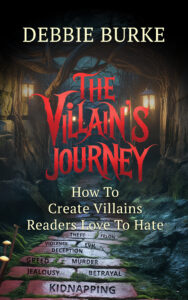
If you’d like a print copy of The Villain’s Journey, Amazon and Barnes & Noble have good track records of delivering books without unexpected side trips.


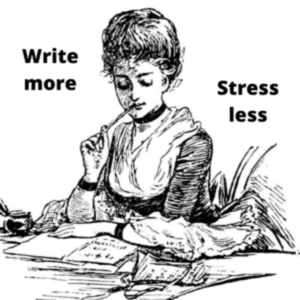
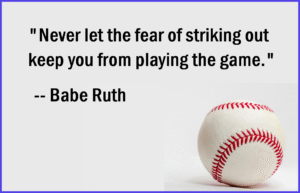



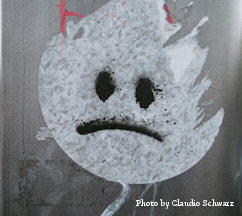

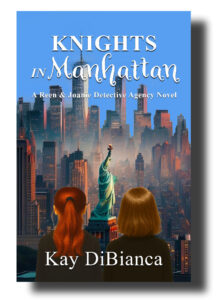



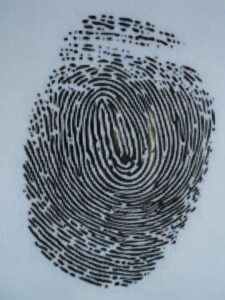 If, say, someone sliced the tip of their finger with a knife, it may leave behind a scar. But then, their fingerprint would be even more distinguishable because of that scar.
If, say, someone sliced the tip of their finger with a knife, it may leave behind a scar. But then, their fingerprint would be even more distinguishable because of that scar.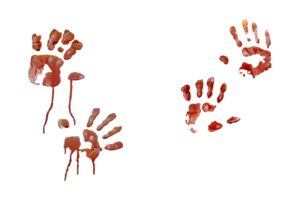 No. Twins do not have identical fingerprints. Our prints are as unique as snowflakes. Actually, we have a 1 in 64 billion chance of having the same fingerprints as someone else.
No. Twins do not have identical fingerprints. Our prints are as unique as snowflakes. Actually, we have a 1 in 64 billion chance of having the same fingerprints as someone else. Losing one’s prints can cause issues with crossing international borders and even logging on to certain computer systems.
Losing one’s prints can cause issues with crossing international borders and even logging on to certain computer systems. By Elaine Viets
By Elaine Viets

 The Villain’s Journey-How to Create Villains Readers Love to Hate is for sale at
The Villain’s Journey-How to Create Villains Readers Love to Hate is for sale at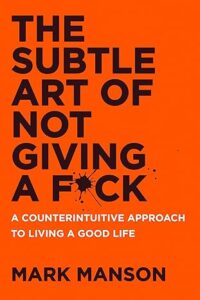 I stumbled across the subject of The Backwards Law by accident—a happy accident that led me to The Subtle Art of Not Giving a F*ck. Excellent book that I devoured in two sittings.
I stumbled across the subject of The Backwards Law by accident—a happy accident that led me to The Subtle Art of Not Giving a F*ck. Excellent book that I devoured in two sittings.





 The things we tell ourselves we become. It’s not easy to silence the inner critic, but it’s a crucial step in every writer’s life.
The things we tell ourselves we become. It’s not easy to silence the inner critic, but it’s a crucial step in every writer’s life.


